Strictly Personal
H.E. the President has spoken about British Togoland, By Kosi Kedem
Published
1 year agoon
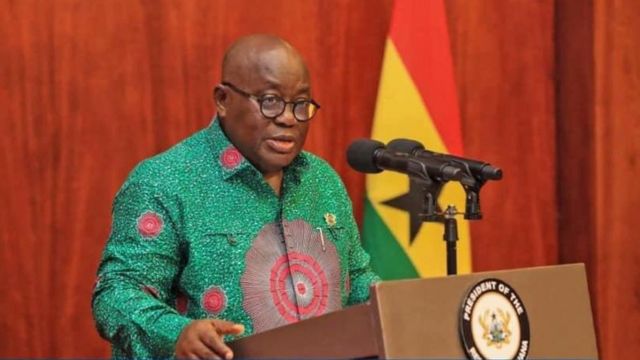
In his 6 March 2023 Independence Day Address at Ho, it was extremely refreshing and comforting to note that H.E. the President boldly referred to the British Togoland. What he said was brief but significant. Some of us had to pinch ourselves to believe what he said.
“I am referring, of course, to the 1956 plebiscite in which, on May 9 of that year, the people of the then British Togoland voted to join the Gold Coast on the attainment of her independence a year later. Without that significant historical event, we would not have Ghana as we know it today”
The President spoke the truth. However, this refreshing piece reference tells only part of the Togoland story. By UN Resolution 1044(XI) Britain was, after the 1956 Plebiscite results were declared, invited to take such steps as necessary to bring about the union between British Togoland and independent Gold Coast (Ghana)
But was there any political union effected between Independent Gold Coast (Ghana) and the UN Trust Territory of Togoland under Britain (British Togoland) on 6 March 1957 as claimed by the Notification Letter sent by Britain to the UN Secretary-General?
The Notification Letter stated in part that,
“…Under the 1957 Ghana Independence Act the Union of the former Trust Territory of Togoland under Britain with the independent State of Ghana took place with effect from mid-night on 5/6 March, 1957.”
It is common knowledge and universally accepted that forming a political union had to be done between contracting parties democratically under due process, negotiation and dialogue. Unfortunately, in the case of Ghana and British Togoland, Britain did not permit that.
The Notification Letter claimed that the union was formed under the 1957 Ghana Independence Act. But the 1957 Ghana Independence Act was wrongly applied to Togoland. It was an inappropriate and wrong Act which was not suitable or appropriate for effecting or bringing about the Ghana-Togoland Union. The Act did not mention a single word about the Union!
So did the 1957 Ghana Independence Act bring about the Ghana-British Togoland Union? Of course, it did not. But if Britain and her collaborators in the UN claimed it did then they have to answer the following questions, (i) How and where was the Union negotiated and enacted and who were the contracting parties?
(ii) Where was the Union Document/Agreement/Deal that recognized, supported and gave the union legal acceptance and backing?
(iii) Where was the Union government and how was it constituted?
(iv) Where and when was the Union celebrated or marked?
(v) Where and what were the Union’s coat of arms, flag and union anthem?
(vi) What type of union government was formed?
(vii) Did the so-called partner in the union, independent Gold Coast (Ghana), accept and approve of the Union?
The Notification Letter was not only misleading, bogus and fraudulent but also a sham and it should have been treated as such by the UN. The UN should have scrutinized and conducted stringent due diligence on it. It is very clear and obvious that instead of a union, similar to that of England and Scotland, that was prescribed by UN resolution 944(X); voted for by the people of Togoland; approved by the Trusteeship Council resolution 1496 and equally approved by UN Resolution 1044(XI), forcible integration, like Morocco and Saharawi, was rather unfairly and unjustifiably imposed on British Togoland. This was, and is still, wrong and it must be rectified without any further delay.
As stated earlier, the 1957 Ghana Independence Act was not applicable to or appropriate for British Togoland. The Act was meant for the Gold Coast and its component parts, Gold Coast Colony, Ashanti and the Northern Territories. The title of the Act clearly stated it “An Act to make provision for, and in connection with, the attainment by the Gold Coast of fully responsible status within the British Commonwealth of Nations” (7th February, 1957). Togoland was a trust territory not a British colony it was, therefore, not bound by a law enacted for a British Colony, the Gold Coast unless it was approved by the UN.
Even more important was the fact that the UN Charter and Trusteeship Agreement on Togoland took precedence over the Gold Coast (Constitution) Order in Council, 1954. With regards to Togoland, British laws and ordinances were inferior to and “subject to the provisions of the United Nations Charter and of this Agreement” (Trusteeship Agreement on British Togoland Article 5(a)). Britain should have sought and obtained permission from the UN before including British Togoland or any part of it in the 1957 Ghana Independent Act.
What happened on 6 March 1957 was not a union as prescribed by UN Resolution 1044(XI) but a forcible integration of Togoland into Ghana. British Togoland, on the pretext of quelling a rebellion there, was invaded and occupied by Britain and the CPP Government around 4th March 1957. You may well recollect the brutal Alavanyo/Kpando crisis! After the occupation, British Togoland was subsequently forcibly integrated with independent Gold Coast (Ghana) on March 6 1957. Through this forcible integration British Togoland lost its national identity, dignity and inalienable rights. Sir Charles Noble Arden-Clarke, the last Governor of the Gold Coast, described this as the triumph of Gold Coast imperialism. “I am glad that Gold Coast imperialism has won.” Definitely, the imposition of Gold Coast imperialism on British Togoland was wrong and contrary to UN’s Charter and principles.
Note that UN resolutions 944(X) and 1044(XI) resolved that there should be a UNION, similar to England/Scotland model, not forcible integration like the Morocco/Saharawi model. Remember that the people of Togoland voted for union, not forcible integration or occupation. Clearly, what Britain installed on March 6 1957 was not a Ghana- British Togoland Union but forcible integration which Sir Charles Arden-Clarke described as “Ghana imperialism.” In order to enforce and sustain this forcible integration or imperialism, governments of Ghana have to pass series of obnoxious laws including the Preventive Detention Act, Supreme Military Council Decree (20), Togoland (Assimilations of Law) Act and Avoidance of Discrimination Act.
Writer
(KOSI KEDEM. Former MP for Hohoe South)
You may like
-


Legendary American music icon Stevie Wonder becomes full Ghanaian citizen
-


Ghanaian Supreme Court begins hearing in case challenging anti-LGBTQ+ bill
-
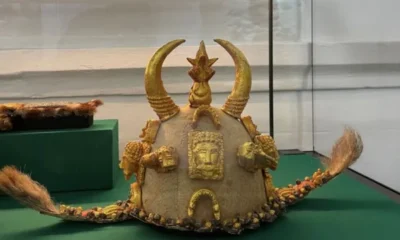

Ghanaians celebrate return of Asante Gold artefacts looted by British
-


African men run away from single mothers— Joselyn Dumas
-


Ghana mourns as top gospel music icon Koda passes away
-
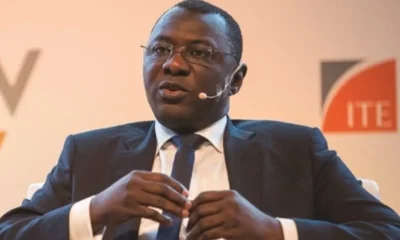

Ghana’s finance minister anticipates debt restructuring MoU with lenders
Strictly Personal
If I were put in charge of a $15m African kitty, I’d first deworm children, By Charles Onyango-Obbo
Published
1 week agoon
May 13, 2024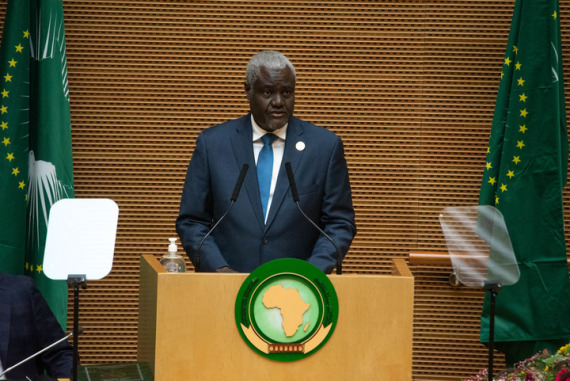
One of my favourite stories on pan-African action (or in this case inaction), one I will never tire of repeating, comes from 2002, when the discredited Organisation of African Unity, was rebranded into an ambitious, new African Union (AU).
There were many big hitters in African statehouses then. Talking of those who have had the grace to step down or leave honourably after electoral or political defeat, or have departed, in Nigeria we had Olusegun Obasanjo, a force of nature. Cerebral and studious Thabo Mbeki was chief in South Africa. In Ethiopia, the brass-knuckled and searingly intellectual Meles Zenawi ruled the roost.
In Tanzania, there was the personable and thoughtful Ben Mkapa. In Botswana, there was Festus Mogae, a leader who had a way of bringing out the best in people. In Senegal, we had Abdoulaye Wade, fresh in office, and years before he went rogue.
And those are just a few.
This club of men (there were no women at the high table) brought forth the AU. At that time, there was a lot of frustration about the portrayal of Africa in international media, we decided we must “tell our own story” to the world. The AU, therefore, decided to boost the struggling Pan-African New Agency (Pana) network.
The members were asked to write cheques or pledges for it. There were millions of dollars offered by the South Africans and Nigerians of our continent. Then, as at every party, a disruptive guest made a play. Rwanda, then still roiled by the genocide against the Tutsi of 1994, offered the least money; a few tens of thousand dollars.
There were embarrassed looks all around. Some probably thought it should just have kept is mouth shut, and not made a fool of itself with its ka-money. Kigali sat unflustered. Maybe it knew something the rest didn’t.
The meeting ended, and everyone went their merry way. Pana sat and waited for the cheques to come. The big talkers didn’t walk the talk. Hardly any came, and in the sums that were pledged. Except one. The cheque from Rwanda came in the exact amount it was promised. The smallest pledge became Pana’s biggest payday.
The joke is that it was used to pay terminal benefits for Pana staff. They would have gone home empty-pocketed.
We revive this peculiarly African moment (many a deep-pocketed African will happily contribute $300 to your wedding but not 50 cents to build a school or set up a scholarship fund), to campaign for the creation of small and beautiful African things.
It was brought on by the announcement by South Korea that it had joined the African Summit bandwagon, and is shortly hosting a South Korea-Africa Summit — like the US, China, the UK, the European Union, Japan, India, Russia, Italy, Saudi Arabia, and Turkey do.
Apart from the AU, whose summits are in danger of turning into dubious talk shops, outside of limited regional bloc events, there is no Pan-African platform that brings the continent’s leaders together.
The AU summits are not a solutions enterprise, partly because over 60 percent of its budget is funded by non-African development partners. You can’t seriously say you are going to set up a $500 million African climate crisis fund in the hope that some Europeans will put up the money.
It’s possible to reprise the Rwanda-Pana pledge episode; a convention of African leaders and important institutions on the continent for a “Small Initiatives, Big Impact Compact”. It would be a barebones summit. In the first one, leaders would come to kickstart it by investing seed money.
The rule would be that no country would be allowed to put up more than $100,000 — far, far less than it costs some presidents and their delegations to attend one day of an AU summit.
There would also be no pledges. Everyone would come with a certified cheque that cannot bounce, or hard cash in a bag. After all, some of our leaders are no strangers to travelling around with sacks from which they hand out cash like they were sweets.
If 54 states (we will exempt the Sahrawi Arab Democratic Republic for special circumstances) contribute $75,000 each, that is a good $4.05 million.
If just 200 of the bigger pan-African institutions such as the African Development Bank, Afrexim Bank, the giant companies such as MTN, Safaricom, East African Breweries, Nedbank, De Beers, Dangote, Orascom in Egypt, Attijariwafa Bank in Morocco, to name a few, each ponied up $75,000 each, that’s a cool $15 million just for the first year alone.
There will be a lot of imagination necessary to create magic out of it all, no doubt, but if I were asked to manage the project, I would immediately offer one small, beautiful thing to do.
After putting aside money for reasonable expenses to be paid at the end (a man has to eat) — which would be posted on a public website like all other expenditures — I would set out on a programme to get the most needy African children a dose of deworming tablets. Would do it all over for a couple of years.
Impact? Big. I read that people who received two to three additional years of childhood deworming experience an increase of 14 percent in consumption expenditure, 13 percent in hourly earnings, and nine percent in non-agricultural work hours.
At the next convention, I would report back, and possibly dazzle with the names, and photographs, of all the children who got the treatment. Other than the shopping opportunity, the US-Africa Summit would have nothing on that.
Charles Onyango-Obbo is a journalist, writer, and curator of the “Wall of Great Africans”. X@cobbo3
Strictly Personal
AU shouldn’t look on as outsiders treat Africa like a widow’s house, By Joachim Buwembo
Published
2 weeks agoon
May 9, 2024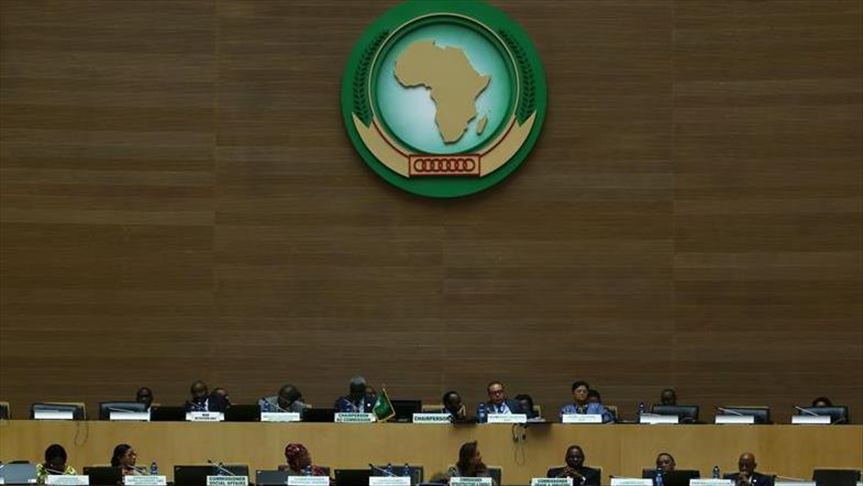
There is no shortage of news from the UK, a major former colonial master in Africa, over whose former empire the sun reputedly never set. We hope and pray that besides watching the Premier League, the managers of our economies are also monitoring the re-nationalisation of British Railways (BR).
Three decades after BR was privatised in the early to mid-nineties — around the season when Africa was hit by the privatisation fashion — there is emerging consensus by both conservative and liberal parties that it is time the major public transport system reverts to state management.
Yes, there are major services that should be rendered by the state, and the public must not be abandoned to the vagaries of purely profit-motivated capitalism. It is not enough to only argue that government is not good at doing business, because some business is government business.
Since we copied many of our systems from the British — including wigs for judges — we may as well copy the humility to accept if certain fashions don’t work.
Another piece of news from the UK, besides football, was of this conservative MP Tim Loughton, who caused a stir by getting summarily deported from Djibouti and claiming the small African country was just doing China’s bidding because he recently rubbed Beijing the wrong way.
China has dismissed the accusation as baseless, and Africa still respects China for not meddling in its politics, even as it negotiates economic partnerships. China generously co-funded the construction of Djibouti’s super modern multipurpose port.
What can African leaders learn from the Loughton Djibouti kerfuffle? The race to think for and manage Africa by outsiders is still on and attracting new players.
While China has described the Loughton accusation as lies, it shows that the accusing (and presumably informed) Britons suspect other powerful countries to be on a quest to influence African thinking and actions.
And while the new bidders for Africa’s resources are on the increase including Russia, the US, Middle Eastern newly rich states, and India, even declining powers like France, which is losing ground in West Africa, could be looking for weaker states to gain a new foothold.
My Ugandan people describe such a situation as treating a community like “like a widow’s house,” because the poor, defenceless woman is susceptible to having her door kicked open by any local bully. Yes, these small and weak countries are not insignificant and offer fertile ground for the indirect re-colonisation of the continent.
Djibouti, for example, may be small —at only 23,000square kilometres, with a population of one million doing hardly any farming, thus relying on imports for most of its food — but it is so strategically located that the African Union should look at it as precious territory that must be protected from external political influences.
It commands the southern entrance into the Red Sea, thus linking Africa to the Middle East. So if several foreign powers have military bases in Djibouti, why shouldn’t the AU, with its growing “peace kitty,” now be worth some hundreds of millions of dollars?
At a bilateral level, Ethiopia and Djibouti are doing impressively well in developing infrastructure such as the railway link, a whole 750 kilometres of it electrified. The AU should be looking at more such projects linking up the whole continent to increase internal trade with the continental market, the fastest growing in the world.
And, while at it, the AU should be resolutely pushing out fossil-fuel-based transportation the way Ethiopia is doing, without even making much noise about it. Ethiopia can be quite resolute in conceiving and implementing projects, and surely the AU, being headquartered in Addis Ababa, should be taking a leaf rather than looking on as external interests treat the continent like a Ugandan widow’s house.
Buwembo is a Kampala-based journalist. E-mail:buwembo@gmail.com
EDITOR’S PICK


Moroccan steeplechase star El Bakkali aims for gold at Paris Olympics
Morocco’s steeplechase champion, Soufiane El Bakkali, says he is aiming for the gold medal at the upcoming Paris Olympics after...


MTN Foundation announces 2024 scholarship for Nigerian students
MTN Nigeria Foundation has announced its 2024 scholarship for Nigerian students to support their education and empower the next generation...


One-year-old Ghanaian breaks GWR as world’s youngest artist
A one-year-old Ghanaian, Ace Liam, has broken a Guinness World Record as the youngest male artist. The infant’s groundbreaking achievement...


Introduction of taxation on online political content aligns with international practices, says UPND media director
The introduction of taxation on online political content aligns with international standard practices used by governments to broaden their tax...
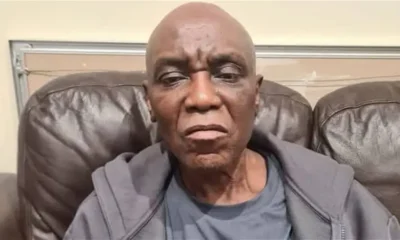

UK to deport physically-challenged Nigerian after 38 years
The United Kingdom has threatened to deport a physically-challenged Nigerian, Anthony Olubunmi George, after living in the country for over...


Nigeria’s Air Peace accused of safety violation by UK regulator
Nigeria’s Civil Aviation Authority has received a letter from the United Kingdom Civil Aviation Authority claiming that Nigerian carrier, Air...


How South Sudanese singer John Frog moved from child soldier to Afrobeats star
John Frog may be one of South Sudan’s most successful musicians at the moment, but a little over 10 years...


American risk management solutions provider Archer opens business in Egypt
American risk management solutions provider, Archer, has announced expanding its operations to Africa with Egypt as the first point of...


South African Akani Simbine beats Omanyala to pick 100m gold at Atlanta City Games
South African sprint sensation, Akani Simbine, on Saturday at the Atlanta City Games further put a dent on Kenyan 100m...


Church in Northern Province cautions against cyberspace abuse, supports cyber security law
The church in Northern Province has issued a warning to Zambians regarding the misuse of cyberspace in the guise of...
Trending
-

 Sports1 day ago
Sports1 day agoSouth African Akani Simbine beats Omanyala to pick 100m gold at Atlanta City Games
-

 Metro2 days ago
Metro2 days agoNigeria kicks as South African police torture citizen to death
-

 Musings From Abroad18 hours ago
Musings From Abroad18 hours agoNigeria’s Air Peace accused of safety violation by UK regulator
-

 Metro2 days ago
Metro2 days agoChurch in Northern Province cautions against cyberspace abuse, supports cyber security law


